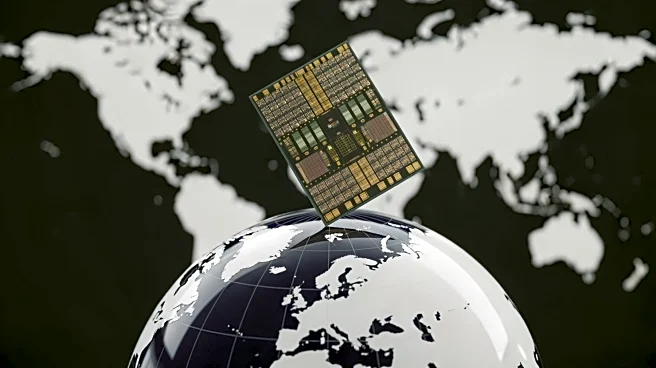What's Happening?
Malaysian Prime Minister Anwar Ibrahim has stated that President Trump assured him that the United States and Malaysia will address the issue of U.S. tariffs on semiconductor imports 'at the appropriate
time.' This statement follows a meeting between Anwar and Trump in Kuala Lumpur. Currently, Trump is contemplating imposing tariffs as high as 300% on semiconductor imports, a decision that could significantly impact Malaysia, which is the world's sixth-largest exporter of semiconductors. The United States is Malaysia's third-largest market for these exports, making the potential tariffs a critical issue for the Southeast Asian nation.
Why It's Important?
The potential imposition of high tariffs on semiconductor imports by the United States could have substantial repercussions for Malaysia's economy, given its significant role in the global semiconductor market. Such tariffs could disrupt trade relations and economic stability for Malaysia, which heavily relies on semiconductor exports to the U.S. market. Additionally, this move could affect the global semiconductor supply chain, potentially leading to increased costs for U.S. companies and consumers. The discussion between President Trump and Prime Minister Anwar highlights the importance of diplomatic negotiations in mitigating trade tensions and ensuring economic cooperation between nations.
What's Next?
While the immediate imposition of tariffs is not expected, the situation remains fluid, with potential for future negotiations or policy changes. Stakeholders in the semiconductor industry, including manufacturers and exporters, will likely monitor developments closely. The U.S. government may engage in further discussions with Malaysian officials to explore alternative solutions or compromises. Additionally, industry leaders and trade organizations may advocate for policies that support free trade and minimize disruptions to the semiconductor market.
Beyond the Headlines
The consideration of such high tariffs underscores the broader geopolitical dynamics at play, particularly in the technology sector. It reflects ongoing concerns about national security and economic competitiveness, as countries seek to protect their domestic industries from foreign competition. This situation also highlights the interconnectedness of global supply chains and the potential consequences of trade policies on international relations.









